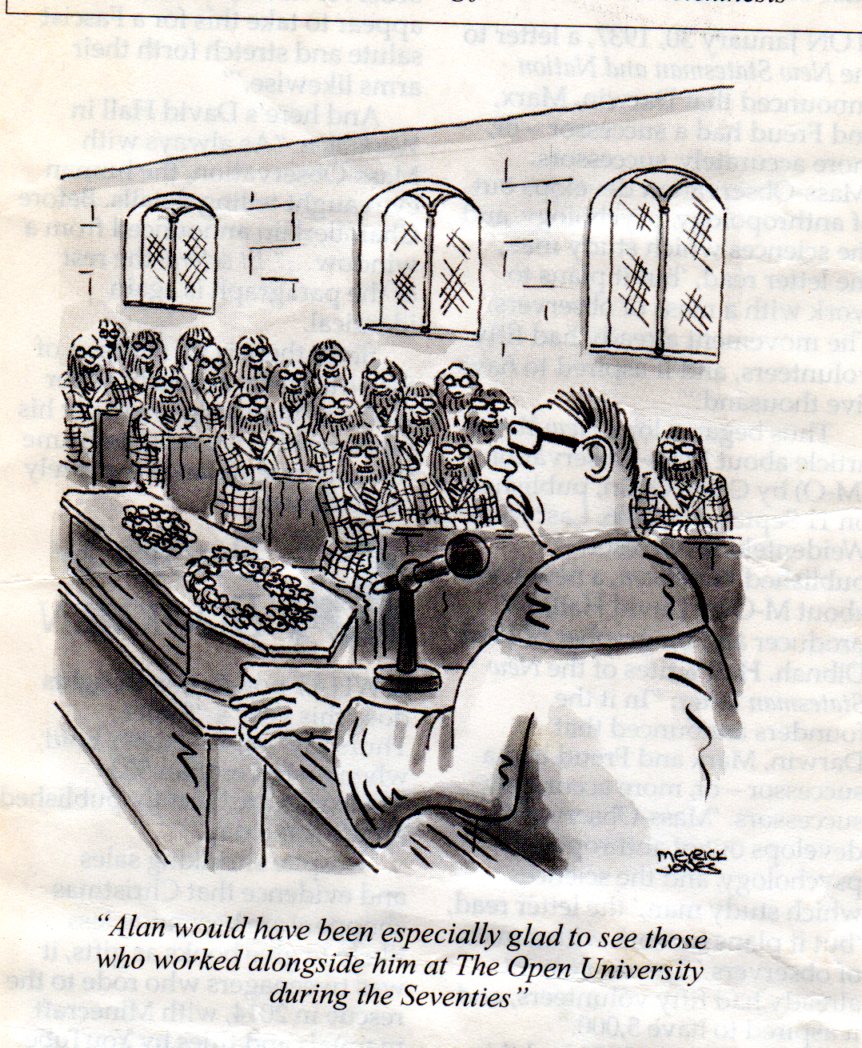Some time ago I posted a Private Eye cartoon that featured a stereotype of OU lecturers. I have discovered that there is at least one more cartoon that makes use of this view.
Thanks to Mike McNulty for sharing this.

Some time ago I posted a Private Eye cartoon that featured a stereotype of OU lecturers. I have discovered that there is at least one more cartoon that makes use of this view.
Thanks to Mike McNulty for sharing this.

The BBC now has a course on being a distance learner and it provides perspectives from distance learners and tutors. It can be found at
http://www.bbc.co.uk/learningenglish/english/gothedistance/about
I think I will be appearing in week 3.I saw this cartoon in the twitter feed of Fernando Rosell (@RossellAguilar). I think it is interesting in showing how stereotypes can exist for all sorts of groups. This is fairly harmless but, of course, stereotypes can often be damaging.
Collini has written several articles and a book about universities and teaching and here is a new article from him in the LRB:
As with previous articles, I find the arguments here persuasive. There is an interesting comment that now academics are seen as "spongers", which seems to reflect current discourse. However, it only requires a little thought to realise that nearly all academics are dedicated and do the job because they are motivated and interested - almost by definition, they are educated and intelligent and could earn more money for less work elsewhere but do the job because they are genuinely interested in their subjects and thinking in general.
Collini
also raises issues about how teaching could be evaluated and casts
doubts on methods like retention, student satisfaction surveys and
employment figures as means of analysis. Low retention figures might reflect non-educational
issues such as health problems and changes in people's circumstances.
This is particularly relevant for the OU as it has many students who have
health issues and although many succeed despite great health
challenges, others have their studies so disrupted that they have to
leave.
Good teaching
consists of interaction and helping students to see the world in new
ways rather than in them simply being happy. Evaluating teaching should
make use of some qualitative methods of observation but I wonder
whether this will happen. There are opportunities for the OU to show how the materials reflect good pedagogy (eg by scaffolding interaction with content).
Employment statistics may also not be relevant for a university like the OU that has a number of older students. I currently have a student who is 89 years old and was speaking to a younger, but still retired, student at a tutorial recently and he was telling me how much he loves studying and that he just does it because curiosity is what a rich life should involve.
This blog might contain posts that are only visible to logged-in users, or where only logged-in users can comment. If you have an account on the system, please log in for full access.